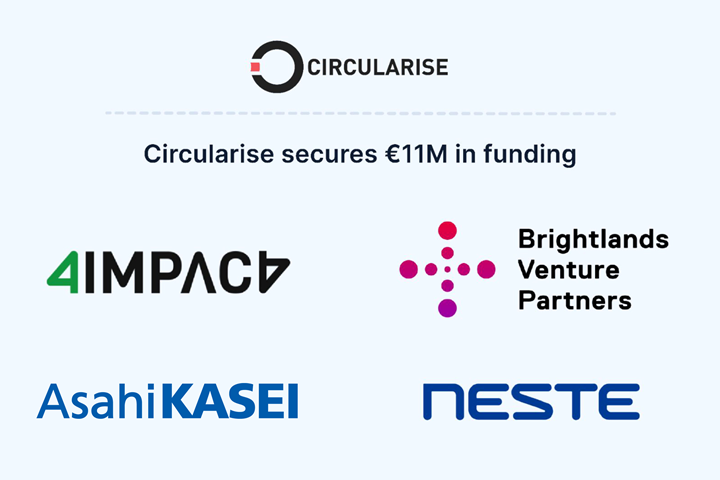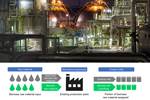Asahi Kasei joins investment in supply chain traceability, transparency system
Alongside three other partners, Asahi Kasei helped raise €11 million to accelerate Circularise, a Netherlands startup enabling traceability of information for raw materials recycling, biomass and more.

Photo Credit: Asahi Kasei Corp.
Together with Brightlands Venture Partners, 4impact capital and Neste, (Tokyo, Japan), a multinational Japanese chemical company, invested in (The Hague, Netherlands), a startup company that provides digital product passports and mass balance bookkeeping software, in November 2022.
Founded in 2016, Circularise aims to accelerate the shift towards a circular economy through supply chain traceability and transparency. The startup has developed a highly reliable supply chain management system that achieves data anonymity and transparency using blockchain technology. By doing so, various information on raw materials, recycling history, biomass and recycling content, carbon footprint, third-party certification and more can be traced through the supply chain while maintaining the confidentiality of each stakeholder’s information.
The Asahi Kasei Group expects to contribute to a carbon neutral and sustainable world by joining the establishment of a digital platform ensuring reliability and transparency in the supply chain, in accordance with its medium-term management plan focused on the theme “Be a Trailblazer.”
Related Content
-
European boatbuilders lead quest to build recyclable composite boats
Marine industry constituents are looking to take composite use one step further with the production of tough and recyclable recreational boats. Some are using new infusible thermoplastic resins.
-
Composites end markets: Sports and recreation (2025)
The use of composite materials in high-performance sporting goods continues to grow, with new advancements including thermoplastic and sustainability-focused materials and automated processes.
-
Airbus works to improve the life cycle of composites in future aircraft
This companion article to CW's September 2024 Airbus Illescas plant tour discusses recycling, LCA, biocomposites, Fast Track technologies, qualification and more.



